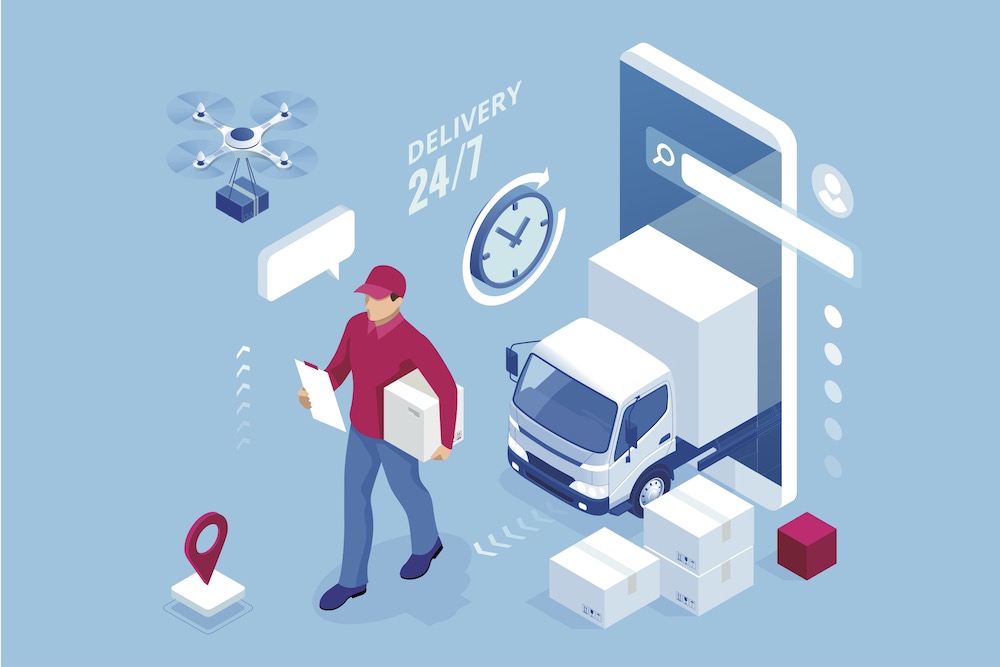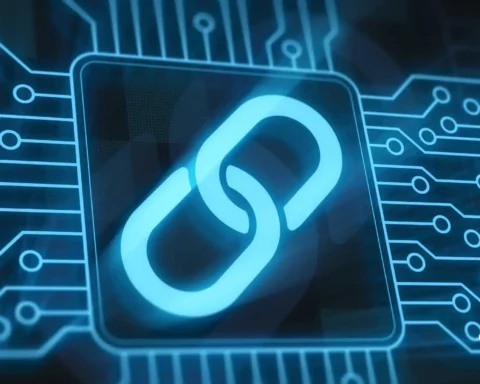With a crowd of competitors, numerous barriers to entry, and the demand for product differentiation in the current globalized economy, efficiency is no longer a luxury but a need.
Customers expect super-fast delivery times, zero errors, and a top-class smooth experience from the beginning to the end of their buying journey.
Surprisingly, these customer demands have now become the minimum standard. How do companies achieve such kinds of operational miracles?
The solution lies in integrated logistics.

But what is integrated logistics?
Let's talk more about its core components and how it can be the key to success for your business.
Table of Contents
What is Integrated Logistics?
What is integrated logistics, you ask?
The concept of integrated logistics can be defined as the seamless operation and effective coordination of all activities related to the movement of goods from their point of origin until they reach their destination.
It combines numerous supply chain elements such as transportation, warehousing, order processing, and inventory management.
The integrated logistics model believes in eliminating silos and fostering collaboration among all departments involved enabling businesses to enhance their logistics processes, decrease costs, and boost efficiency on the entire system.
Unlike traditional logistic systems that have a more individualized perspective separating elements like transport and warehouse management systems, the integrated logistics approach is focused on information sharing across the entire supply chain.
Real-time data is freely spread to all departments, enabling them to work together from the moment you search for raw materials, start the shipping process, and deliver to your customer's doorstep in the shortest time.
YOU MIGHT BE INTERESTED IN: Is Slovenia the Emerging Logistics Goldmine in 2024? Insights from Natasa Pogacnik
Key Components
Transportation Management System
An effective transportation management system is a critical component of integrated logistics management. This involves planning, executing, and supervising all transport activities, such as picking the most efficient modes of transport and routes and monitoring the shipment process in real-time.
Applying a transport management system (TMS) is necessary to acquire business operations and improve current logistics operations.
Information Technology
An advanced IT system is crucial in facilitating the core concept of the integrated approach, which is the seamless exchange of information among the various supply chain components. Investing in advanced technology, such as enterprise resource planning (ERP), TMS platforms, and warehouse management systems (WMS), plays a critical role in data-driven decision-making.
Efficient Inventory Management
Integrated logistics solutions involve optimizing inventory levels across the supply chain.
By employing advanced inventory management techniques, businesses can reduce stockouts, minimize carrying costs, decrease excess inventory, and maintain optimal inventory levels for on-time delivery and fulfilling customer orders.
Order Processing
Order processing is the foundation of any supply chain function since it includes receipts, handling, and meeting customer expectations.
Moreover, integrated logistics strategies ensure that order processing is closely linked with other supply chain operations.
Such an approach can lead to quicker completion of orders, reduced order errors, and higher customer satisfaction.
Warehousing
In the supply chain, warehouse activities are essentially the storage and movement of goods among locations.

In an integrated approach, the system guarantees seamless coordination with other supply chain functions, leading to better inventory management, an improved customer service experience, and faster order turnaround times.
Benefits of Integrated Logistics
Properly integrated logistics is crucial for minimizing confusion and making it easy for firms to provide customers with one brand, one legal entity, one expert, and essentially- one service partner.
Integrated logistics has many advantages. Some of them are:
- Increased visibility into the whole supply chain
- Improved coordination among all departments of the supply chain
- Boosting sales
- Reduced transportation costs.
- Improved inventory and stock management.
Is Integrated Logistics the Solution for Your Business?
While you might have initially wondered, "What is integrated logistics?" you must now wonder, "Is an integrated logistics model the solution for my business?"

Although integrating your supply chain processes is not simple, it yields rewarding results, lowers costs, gives better supply chain visibility, and brings greater efficiency to your organizational processes.
The decision to employ integrated logistics depends on many factors.
For instance, company size and the firm's industry play a crucial role. E-commerce businesses with complex supply chains can reap immense benefits.
Scalability is another factor - integrated solutions can be customized to your business's particular requirements. For instance, smaller companies can apply basic integration techniques to gain benefits.
Carefully assessing your company's needs, perhaps consulting with logistics experts, and navigating how integrated logistics can push your business forward can help you come to your decision.
ALSO READ: India and Slovenia Logistics: Business Potential in 2024
Conclusion
Integrated logistics offers a creative path to business success.
Through streamlining operations, improving customer satisfaction, and minimizing costs, integrated logistics can give your firm a competitive edge in the current competitive marketplace and a potential solution for your firm.
Keep in mind that a well-organized supply chain can be the leading force pushing your business to the skies of success.
What is integrated logistics?
Take your step towards unlocking the full potential of your operations, and find out for yourself!
FAQs
What do you mean by integrated logistics?
Integrated logistics is a business mode widely used to improve product delivery and enhance customer service.
What is the meaning of integrated?
Integrating something means combining its elements to develop an interrelated whole.
What is meant by integrated logistics support?
Integrated Logistics Support (ILS) is a business model designed to develop efficient support for business systems throughout their lifecycle.











[…] ALSO READ: What is Integrated Logistics? Is it the Key to a Successful Business? […]
[…] logistics industry is undergoing a profound transformation driven by digital solutions that are […]